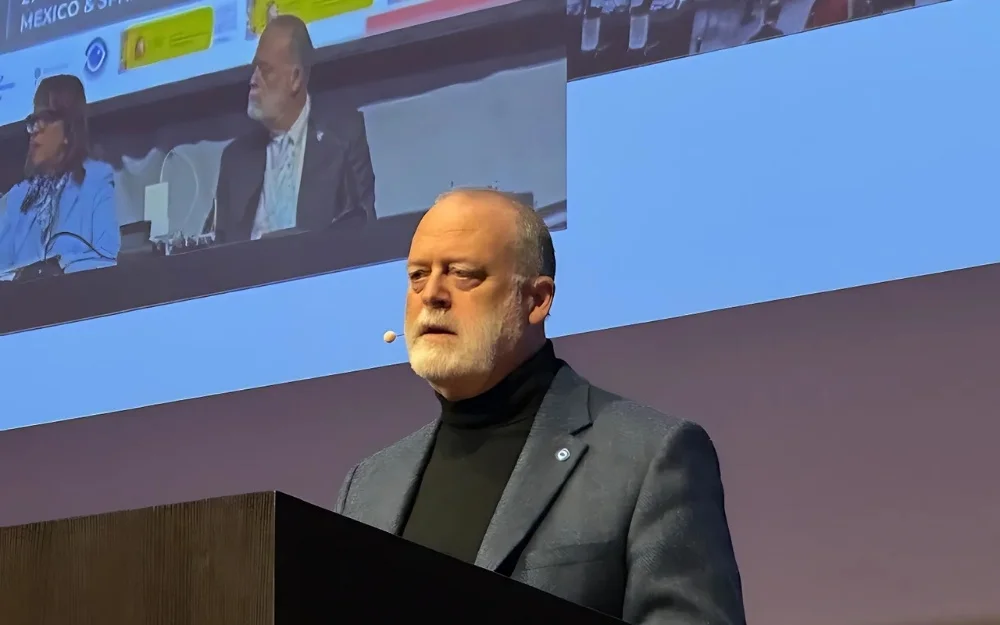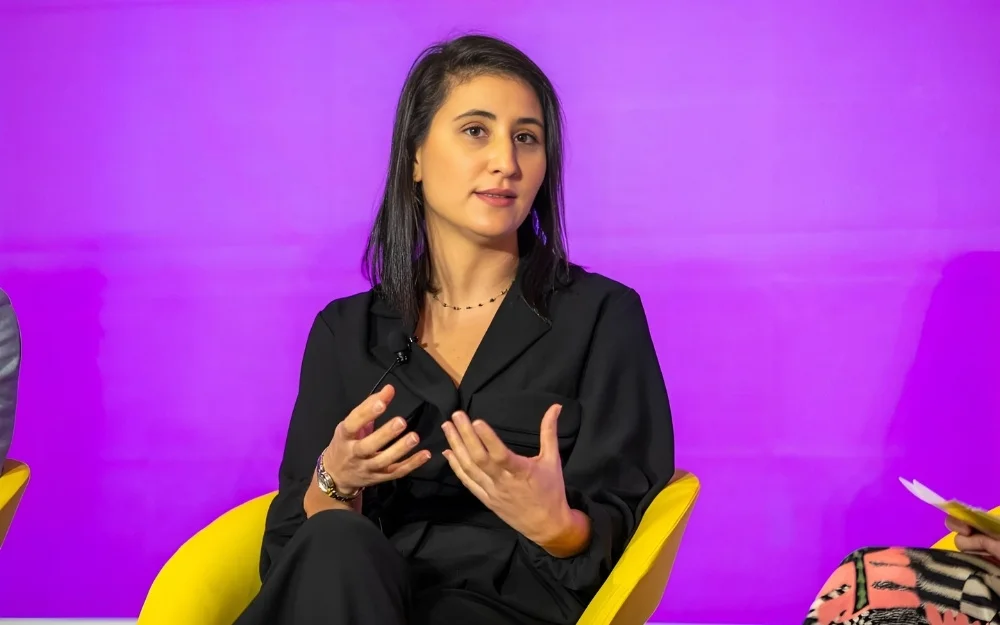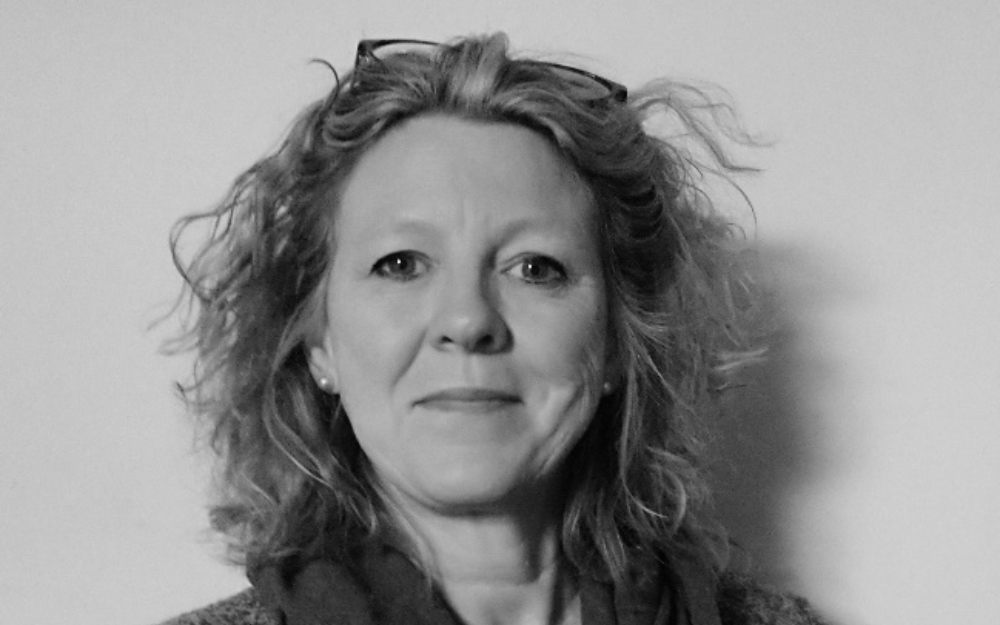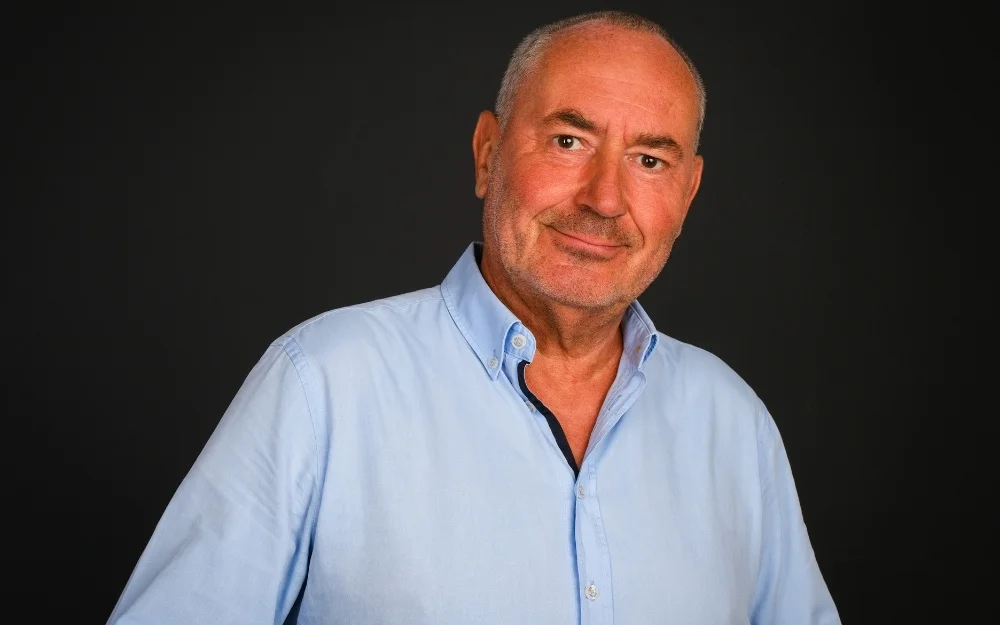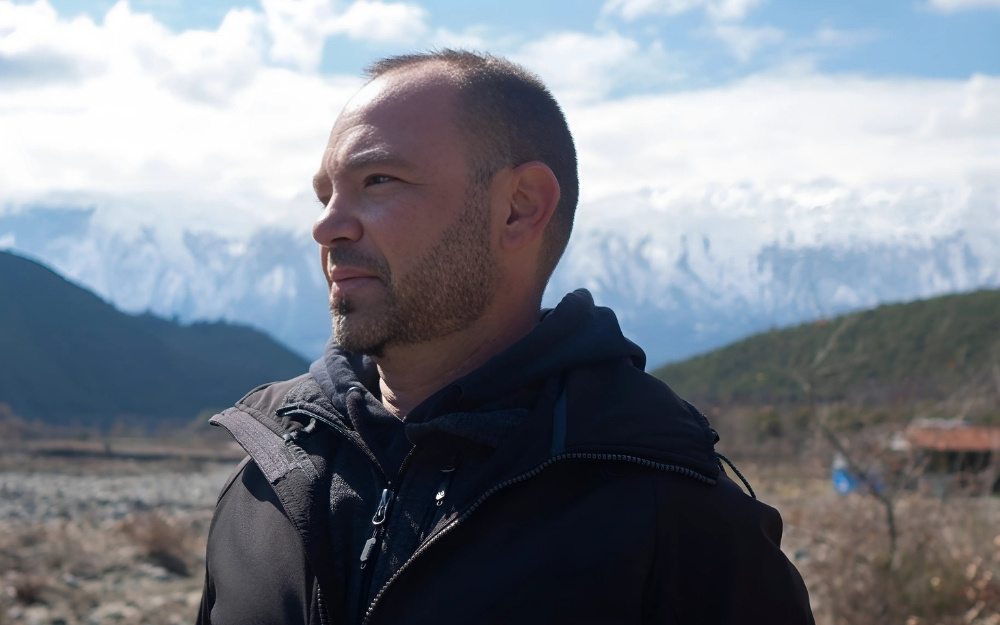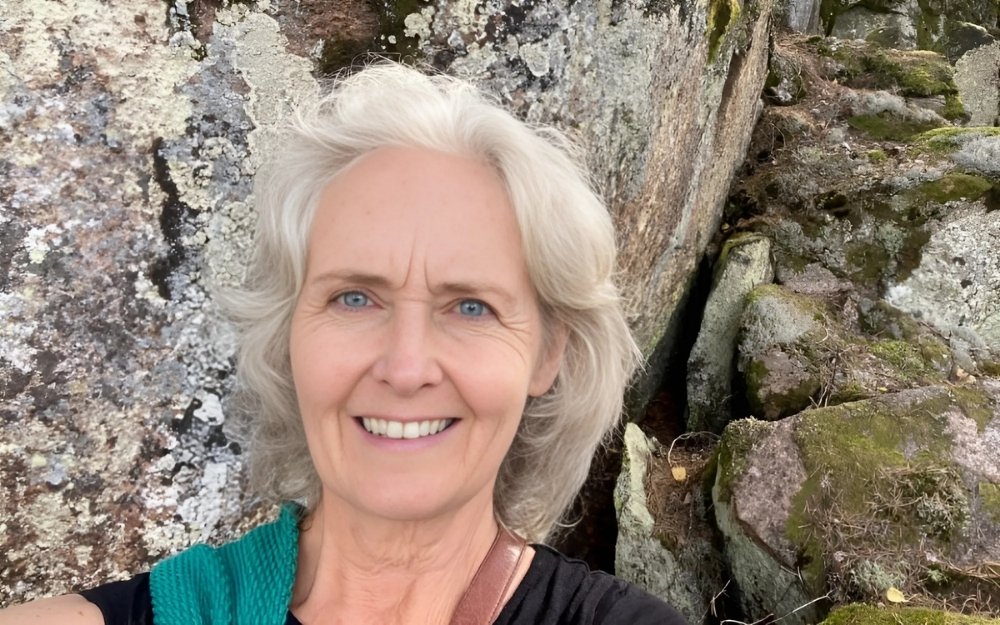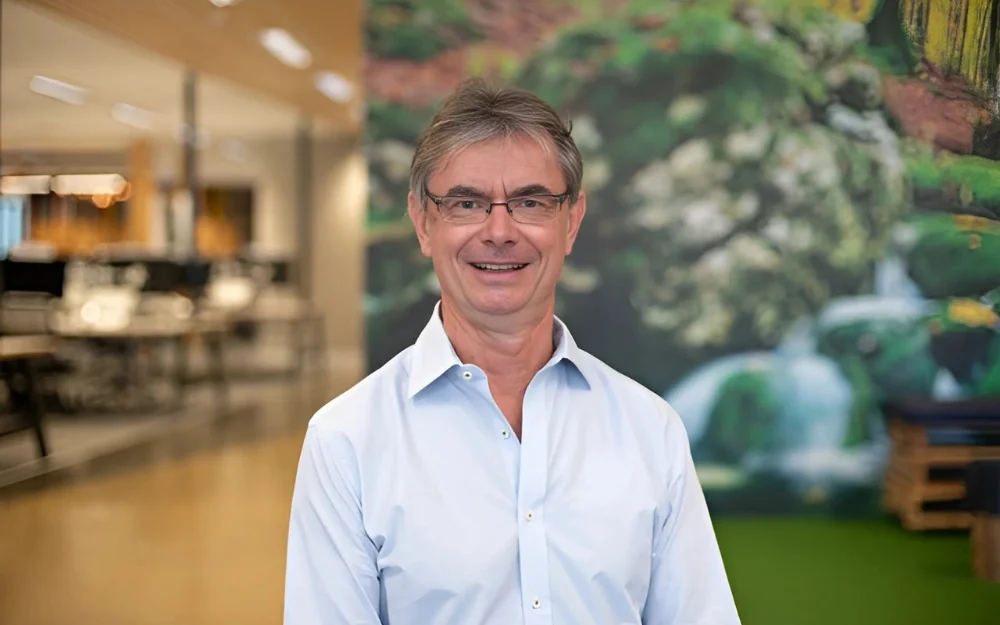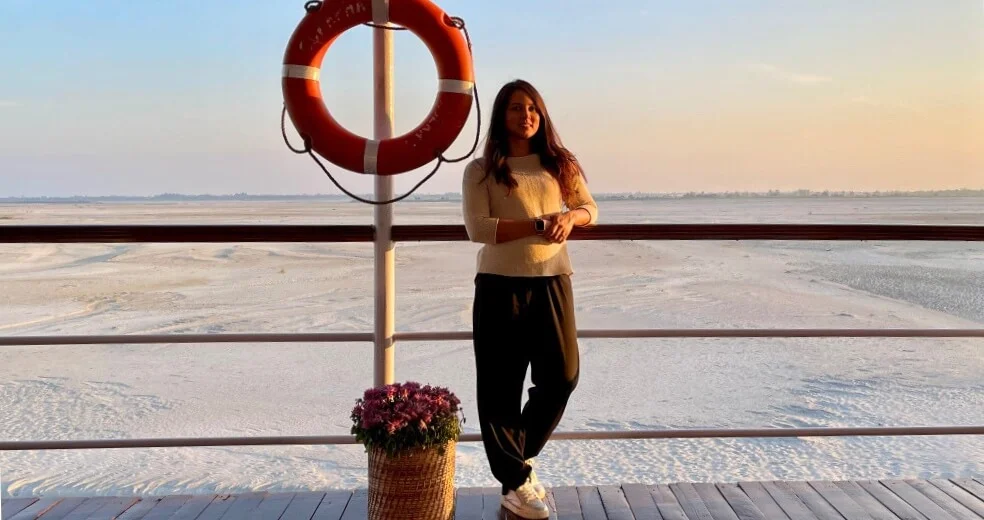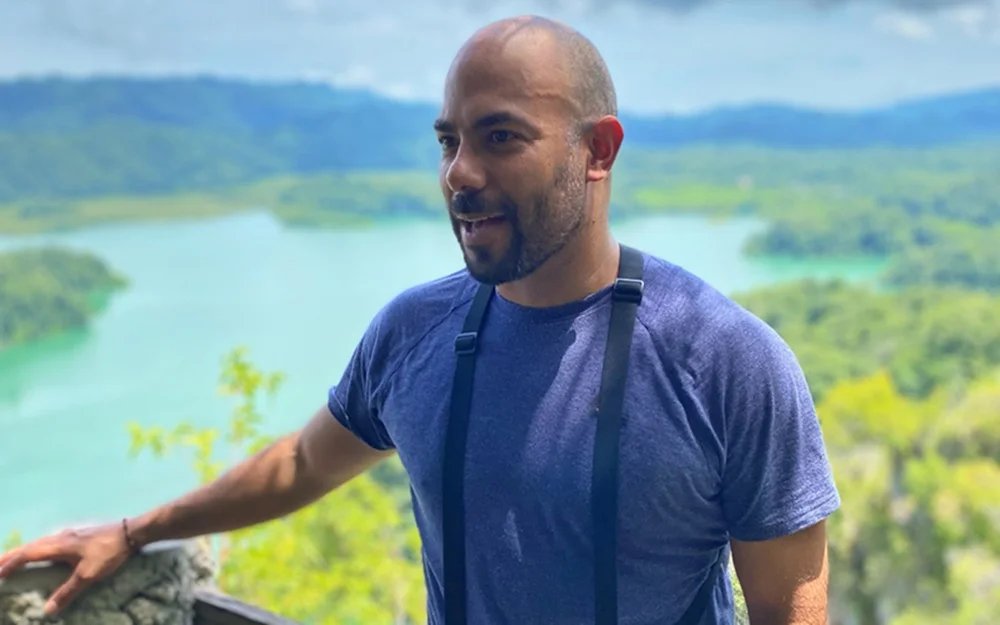
Jamie Sweeting, President of the Planeterra Foundation, in this interview reflects on his many experiences and insights gained throughout his professional career dedicated to sustainable tourism. He also illustrates how Planeterra supports entrepreneurs and communities to benefit from the growing responsible travel movement, and shares his thoughts on major trends and developments linked to tourism and sustainability.
Learn about:
- What brought Jamie Sweeting to focus his career on responsible travel, and how his view on tourism and sustainability has changed over the years;
- The main barriers entrepreneurs encounter when trying to develop new responsible travel products;
- How Planeterra helps entrepreneurs and communities to get access to the tourism market;
- Why governments and tourism businesses need to step up and address looming cultural and environmental catastrophes, threatening more and more destinations;
- Why Jamie Sweeting considers destination Peru a great example of responsible tourism development;
- Growing demand for community-focused, transformational travel experiences as one major trend.
Jamie, throughout your extensive professional career in sustainable tourism you have provided support on a wide range of topics to companies, non-profits, governments and destinations. Do you remember the first time you heard about “sustainability”? What led you to dedicate your life to the development of sustainable tourism?
I got into SCUBA diving when I was a teenager back in the 1980s, and as a passionate diver, I fell in love with the marine world. From there it seemed pretty clear to me that the common sense approach was to protect the places I wanted to visit and enjoy.
Has your view on the topic changed since you first got involved?
Yes and no. I still very much believe that tourism can, and should, be a major contributor to conservation and community development. However, I now know that this isn’t necessarily that important to the majority of the world’s travellers.
I spent many years struggling with coming to terms with this fact. “Why don’t they care?” I’d incredulously ask myself…” How can they not care?” Eventually, I realized that, while it’s easier to work in scenarios where the traveller does actively care, it’s still very important to work hard on these issues even if they don’t.
Why? Because if tourism activities are fundamentally unsustainable, eventually destinations will reach a tipping point whereby the negative effects will degrade the travellers’ experience. In turn, demand will drop and it’s exceptionally difficult to regain market share once it’s been lost.
After 50+ years of mass tourism, we’re unfortunately on the precipice of the mountain, about to witness the decline of many tourism destinations that have failed to manage themselves sustainably and are soon going to pay a hefty price.
You are the President of the Planeterra Foundation, which focuses on connecting and supporting women, youth and indigenous communities. In your view, which are the main barriers with regards to succeeding as an entrepreneur and developing successful tourism “products”?
Tourism is a global industry. This means that tourism entrepreneurs developing small businesses are not only competing within their local market, but the destination and country they operate in are competing with others to get travellers to choose their destination.
Another barrier is a lack of knowledge amongst consumers with regards to understanding what is responsible travel, in connection with local people and the environment – often well-meaning travellers fail to seek out responsible travel choices simply because they don’t know what is good and what is bad.
The wonderful thing about Planeterra’s model is that we partner with travel companies to see where they already have a business. We determine whether developing a social enterprise and integrating it into their product mix will make their tours more attractive and provide a better experience for their guests. We’ve literally flipped the “build it and they will come” model on its head, by building projects where people are already coming to visit.
Various of our previous interviewees, including Carole Favre and Megan Epler Wood, pointed to lack of market access as one key issue preventing local communities from fully participating in – and benefiting from – the tourism supply chain. How does Planeterra help them overcome this hurdle?
As I mentioned before, we start with the market first. Building a tourism market from scratch is extraordinarily difficult unless you have some exceptional assets in your favour. Chances are there are already travellers going to (or near) your location if you have some of those assets.
If you are trying to be a pioneer, getting travellers to come to your remote community, you have to recognize that it may well be a long, hard slog. Unfortunately there are many more examples of failure than there are successes.
That said, we have a number of Planeterra projects that are in areas where there are already travellers, but those community enterprises weren’t benefiting from that traffic. We were able to work with those enterprises to build their capacity to work with groups, rather than waiting on passing individual travellers.
In these cases, it was a matter of identifying the opportunity for both the travel company and the community enterprise and making the market linkage that has made these ventures successful. Planeterra’s long-term successful partnership with the leading adventure operator G Adventures has allowed us to rapidly increase tourist visitations to such initiatives.
Last year we partnered with a Women’s Cooperative in Belize, which was receiving approximately 100 travellers per year. Now they are receiving over 1,000 travellers per year as a result of being integrated into G Adventures Belize trips.
In your view, are international events and organizations like UNWTO, GSTC and the 2017 UN Year of Sustainable Tourism adequate ways for overcoming the challenges of sustainability in tourism globally?
These are important organizations and events. However, until we truly mobilize the power of the private sector and governments, I think the goal of sustainable travel will remain elusive.
I believe that governments need to do more to safeguard their natural and cultural assets, and to reward companies that act responsibly and support community development and conservation.
At the same time, the global tourism industry is suffering from a massive case of the tragedy of the commons. None of the major travel brands have truly committed to internalizing the costs of maintaining the proverbial goose that lays the golden egg. For now, they are getting away with it, as are the vast majority of the literally millions of tourism enterprises around the world – but for how long?
In the coming decades we are sadly most likely going to witness some major cultural and environmental catastrophes; the global rapid decline of coral reefs, for example. Not only will this deprive us of some of the world’s most spectacular environments and species, but also the critical ecosystem services they provide.
Its time for the travel industry to start paying much more attention to cultural and environmental issues, both from a business and an ethical perspective. These massive impacts are now no longer lifetimes away. They are happening now.
As VP of Social Enterprise and Sustainability of G Adventures and avid traveller yourself, which destinations have inspired you the most this year, for their innovative sustainability initiatives?
Peru continues to impress me. I think some of this may have been fate – their international tourism industry has been built around selling nature and culture and not sun, sea and sand. As such, the vast majority of the industry is locally-owned and run.
As some of the main destinations of the country have developed over the past decades, so has the quality of the product at all service levels. More recently there has been a growth in the diversity of places and products that can be visited, as well as a blooming food tourism market.
The government is also actively engaged in working with the private sector to address major challenges regarding visitor management at prime sites such as Machu Picchu.
Throughout your professional career, have there been any specific organizations or persons that have served you as role models or source of inspiration?
Too many to list here. I have been very blessed that I have had many, many people support me in my career. I am eternally grateful to each and every one of them. I’m part of the first generation of people who actually actively embarked on a career in sustainable travel. I studied tourism as an undergraduate at Manchester University in the UK (and even did my thesis on ecotourism) and then went on to do a Masters in Tourism Administration at The George Washington University.
The pioneers in this space all came from different and diverse backgrounds – tourism planners, landscape architects, environmentalists, filmmakers, marketers, designers, anthropologists, entrepreneurs, chefs, etc. etc.
Beyond my pure passion for travel and experiencing different cultures and places, I believe it is this diversity of different people and professions that has made my career in this area so rewarding.

Overtourism has become a critical sustainability issue for popular destinations. In your view, what should destination managers, but also tour operators like cruises, do to prevent it?
There is nothing particularly new about the phenomenon of overtourism, except the very apt word that’s been recently popularized by Skift.
There were complaints about tourist crowds in the Lake District in England as far back as the 1850s. When I lived in York, England in the 1980s, disgruntled residents ran a campaign against the intrusion of too much tourism on their daily lives by printing and disseminating T-Shirts that said “F*** Off Tourists!”
The answer to these challenges is better to run tourism. It’s really not rocket science – better coordination, scheduling and management can often dissipate many of these problems.
Concerns about overtourism are often not just about overcrowding, but also indicate an imbalance of who is really benefiting from the tourism in a given destination.
In the travel industry we are often guilty of looking at places solely as destinations, rather than as the collective home of the people living there. When local people are seeing adequate benefits from tourism, and travel experiences are managed effectively and efficiently, we can witness the win-win of tourists having a great visit and the host community seeing tangible and measureable benefits, and therefore becoming even more motivated to make tourism a sustainable, inclusive endeavour.
Specific to the cruise industry, I’ll share a little known fact: cruise lines are not allowed under legal anti-trust provisions to meet and coordinate schedules, even if it is to minimize overcrowding. National and local governments that control the ports of call can do this, but the cruise lines cannot.
So, you can blame the cruise lines for overcrowding in places like Dubrovnik. But apart of avoiding that port (which, one could argue, would not be meeting their fiduciary obligations to their shareholders, given the significant customer demand to visit the historic city) there is little they can do to solve this situation without government intervention.
Another issue, which you talked about in your keynote at the T+SG summit, is that only 5 out of every 100 tourist dollars spent stay in the destination visited. Do you have an idea of how to change this and make the tourism system fairer?
Buy local! At G Adventures, 91% of our on-tour hotels, restaurants and tour providers are locally owned. Of those, 9 in 10 purchase more than half of their supplies from local producers, markets and farms. That means there is very little leakage of the tourism dollars G Adventures spends in-country, to put together our trips.
And there is a significant multiplier effect of those dollars spreading through the local economy.
The key is to follow where the money goes and ask who is benefiting from the tourism economy.
Which major trends do you observe in tourism right now which might support or threaten the ability of tourism businesses or destinations to become more sustainable?
There is little doubt that more and more people are craving the opportunity to have meaningful interactions with nature and local people in the places they go and visit; so much so that we are heading for this positive phenomenon going mainstream rather than being niche.
I’m certainly not suggesting that everyone wants this kind of experience or that they want it all day, every day on their holiday. But if we continue to see the traditional cruise passenger and sun, sea, sand tourist seeking out one of these experiences when they take a trip, then we rapidly move from this being a niche offer to a segment of the travel industry catering to tens of millions of people.
What excites me about this is the potential to increase the quality of life for hundreds of thousands of people currently living in poverty, by providing wonderful tourism experiences to people who want more from their holiday.
Finally, what’s next for Planeterra? Are there any upcoming projects that you feel particularly excited about?
We’re busy trying to bring new social enterprises to market that benefit marginalized women, disadvantaged youth and rural communities, particularly indigenous communities. We’re always on the lookout for new projects and certainly encourage people with ideas and opportunities to reach out to us.
We’ve also been working with G Adventures and other partners to develop and publish some new responsible tourism guidelines. Last year we worked in collaboration with George Washington University to publish good practise guidelines for working with indigenous communities – available as pdf here.
Currently, we’re partnered with the ChildSafe Movement and Friends International to develop similar guidance for travel companies on child welfare.
We hope other companies and organizations will take up these guidelines and integrate them into their day-to-day business practices.
Thank you, Jamie.
Connect with Jamie Sweeting on LinkedIn or learn more about Planeterra Foundation here.
Enjoyed our interview with Jamie Sweeting on how Planeterra Foundation works with tourism entrepreneurs and communities, and the future of responsible travel? Spread the word!

